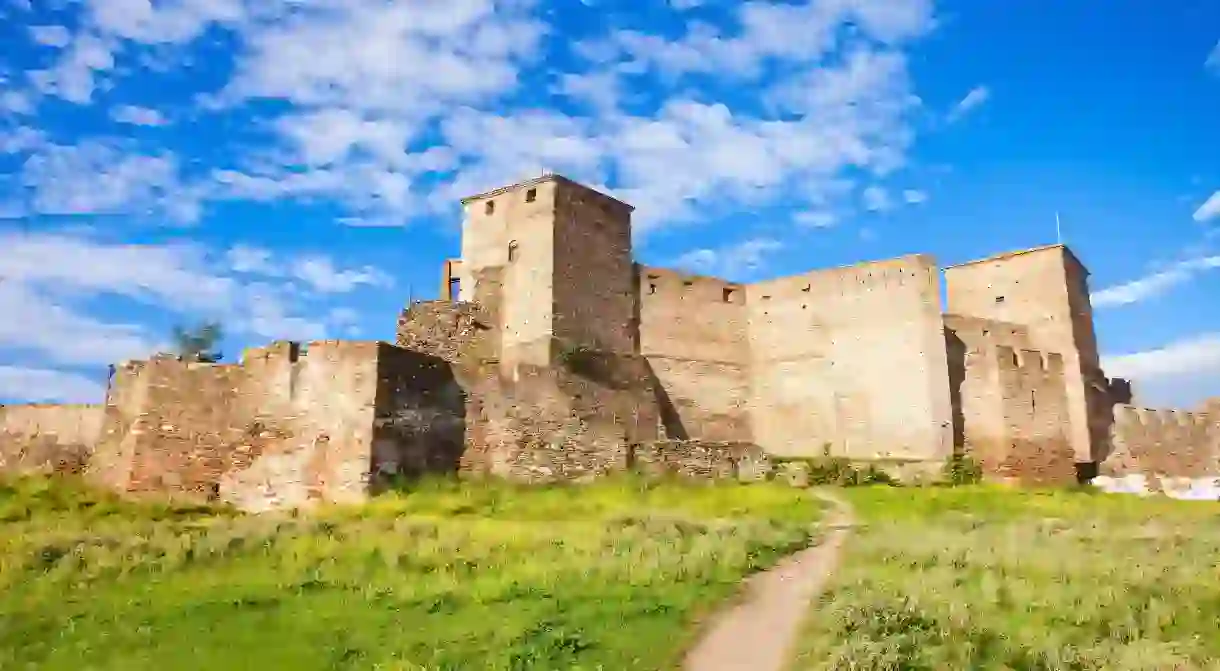Must-Visit Historic Sites in Thessaloniki, Greece

Thessaloniki, Greece’s second-biggest city, has a fascinating past, evident in must-visit historic sites including castles, ruins, churches, towers and ancient baths. Thessaloniki is the second-biggest city in Greece and its position in the north meant a long and complex history of invasion that led to an abundance of fascinating historical sites. Over the years, it was taken over by many empires such as the Romans, Byzantines and Ottomans. The result is a melting pot of architectural styles, from Roman ruins to settle your explorative spirit; to foreboding fortresses overlooking the city, now abandoned. Visit these must-see historic sites dotted throughout the bustling city then spend the evening eating and drinking at Thessaloniki’s famous harbour for the wonderful atmosphere and even better food, just as the Greeks like it.
Did you know – Culture Trip now does bookable, small-group trips? Pick from authentic, immersive Epic Trips, compact and action-packed Mini Trips and sparkling, expansive Sailing Trips.
White Tower

This 15th-century Ottoman landmark was originally an army garrison and prison. In 1826, Sultan Mahmood II had all prisoners slaughtered, and it became known as the Red Tower. Some believe it got today’s name when a prisoner white-washed the building in 1890 in exchange for his freedom. Others say when the Greeks liberated the city from the Turks in 1912, the tower was painted white, symbolising purification. Today it’s a museum standing proudly on the waterfront on Nikis Street and is a great place to relax.
Arch of Galerius

The arch is the most popular place in the city for locals to meet, which makes for a brilliant history lesson and a buzzing atmosphere. The arch was built by Roman Emperor Galerius to commemorate his military victories against the Persians, depicted in the intricate carvings. It was positioned to lead straight through the city to his palace. Known locally as the Kamara, it sits in the middle of the old town on Egnatia. Relax in its shadow with locals and enjoy its impressive size and unusual structure.
Ancient forum
In the first century CE, you wouldn’t hold a meeting anywhere but the forum. It was the social, religious and business heart of the city and known in Greek as the Agora. The elegant buildings and porticos of old are still visible in these beautiful ruins, testament to the prosperity of the ancient city. Head to the centre of the old town, just off main street Agiou Dimitriou, to bask in history and pretend you’re a rich Roman socialite.
Cathedral Church of Hagia Sophia of Thessaloniki
Built around the early 7th century CE, the Great Church was the main civic church of the city for much of its history. Today, the huge, freestanding building of classic Byzantine architecture is part of a UNESCO World Heritage site. Inside, intricate Greek Orthodox mosaics line the domes and chandeliers light the room, adding to the peaceful solemnity. The cathedral stands in green Agia Sophia Square in the old town Ana Poli, a lovely place to chill in the Grecian sunshine.
Heptapyrgion Fortress
For a history lesson of the bloody kind, check out this abandoned fortress. Its seven towers were originally built by the Byzantines in the 14th century, then rebuilt by the Ottomans in the 15th century. It was converted into a jail in the 19th century and held political prisoners during the German occupation of World War II, as well as during Greece’s military dictatorship. The foreboding castle sits high on the acropolis – a staple of every Greek old town – overlooking the sprawling city.
Bey Hamam
These Ottoman baths are the oldest of their kind in the city, dating back to 1444. They were a key part of Ottoman culture where the elite socialised. A spiritual hub, they were still in use until the 1960s and are nowadays a space for cultural events and exhibitions. Get lost among the arches and passageways, taking in the impressive painted domes and marble work. The baths are positioned by Aristotelous Square and have free entry outside of event times.













